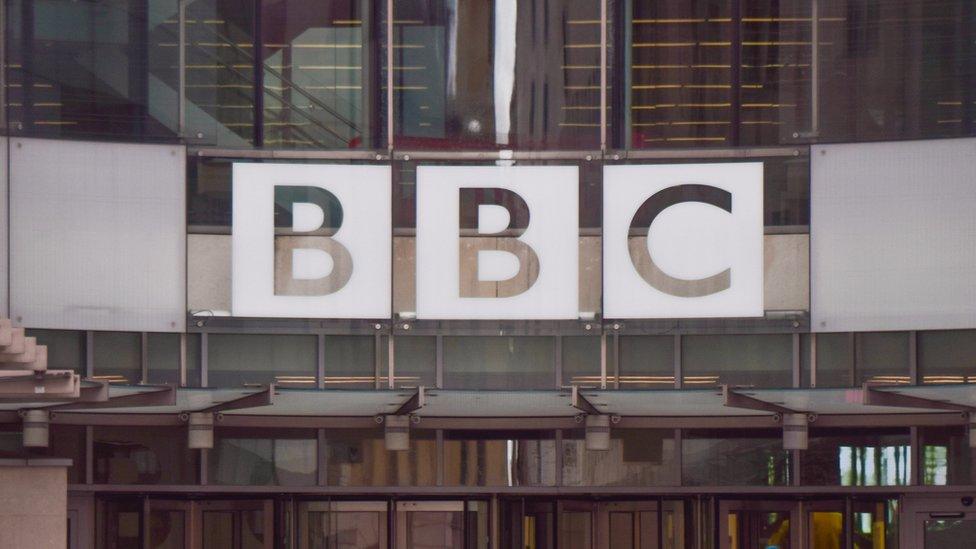BBC director general defends 'painful' local radio cuts
- Published
- comments
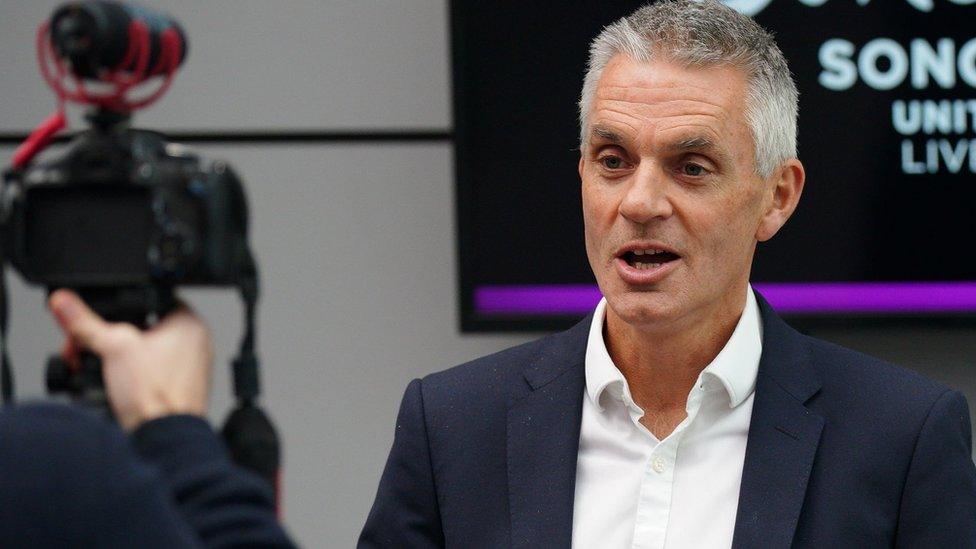
Tim Davie said audience behaviour is changing, with 13% of the population listening to local radio
The BBC's director general has defended proposed cuts to local radio as being "the right thing", but admitted they are "very difficult and unpopular".
Challenged by MPs on a House of Commons committee on Tuesday, Tim Davie described local radio as "precious".
But he said he had made "a painful choice" because the BBC did not have the funding to "keep everything whole".
The plans will see England's 39 local stations share more programmes in afternoons, evenings and weeknds.
Presenters, journalists and producers have been asked to go through a recruitment process for the reduced number of shows.
'Workplace bullying'
Conservative MP Steve Brine said he had been told that experienced presenters at his local station had been required to "sell themselves in 60 seconds" to save their careers, and to make demo tapes that managers never accessed.
The process amounted to "workplace bullying", Mr Brine claimed.
Mr Davie responded: "What the team have tried to do is get a process that is fair to everyone and level the playing field."
He said he did not know the full details of the recruitment procedures, adding: "Everyone will have a view on the process. Is it pleasant to go through? No."
Last week, local staff walked out on a 48-hour strike in protest at changes to the output.
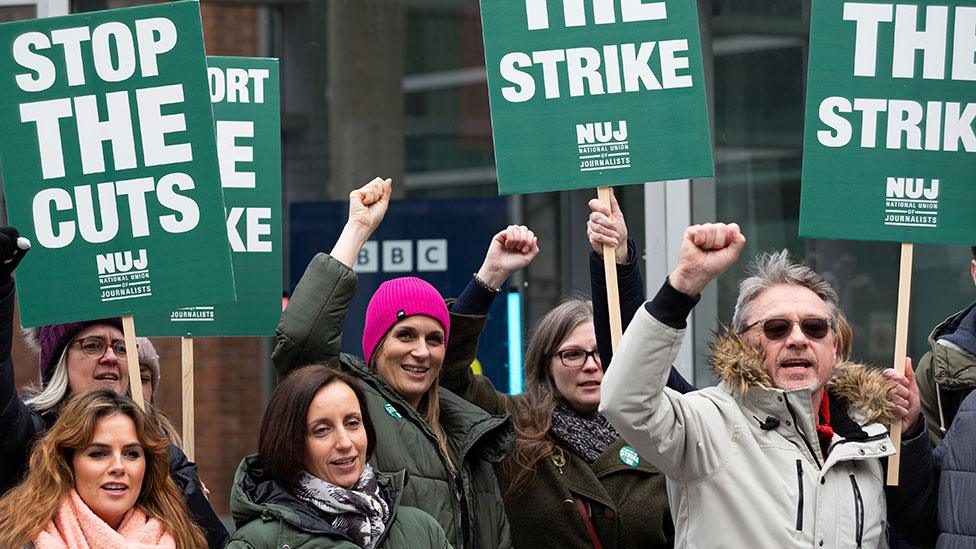
BBC journalists initially walked out on strike in March in a dispute over cuts to local radio
A number of MPs had previously written to Mr Davie raising concerns about the proposals, but the director general told the committee: "We understand and are listening and have already made some adjustments to our plans to make sure we're making the right choices with very limited money."
Members of the National Union of Journalists (NUJ) are also working to rule, which includes refusing to act-up to more senior roles.
"As we move through the process I'm hoping we have more certainty for people," Mr Davie said.
The changes will not result in a "big change" in the BBC Local head count or budget, he said.
The broadcaster is moving resources from local radio to digital output and a network of new investigative teams.
Conservative MP Simon Jupp, another member of Parliament's culture, media and sport committee, questioned whether the recruitment process was "robust, fair and even nice". He also suggested Mr Davie was "managing decline".
"Quite the reverse," the director general replied, noting that local radio audiences had declined by 20% in recent years.
"If you're sitting with all your money on broadcast, you will be managing decline," he said. "That is a decision I cannot take for the BBC."
Related topics
- Published16 May 2023
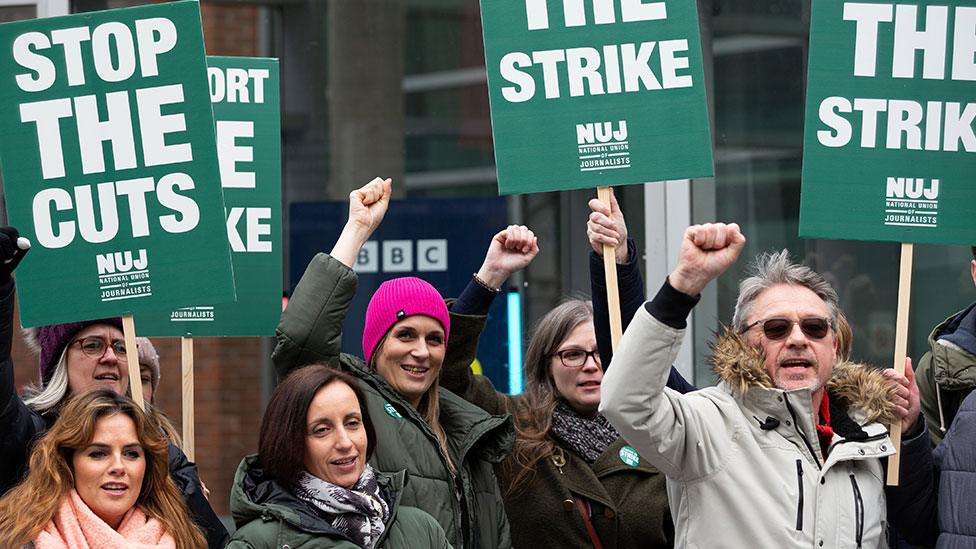
- Published1 November 2022
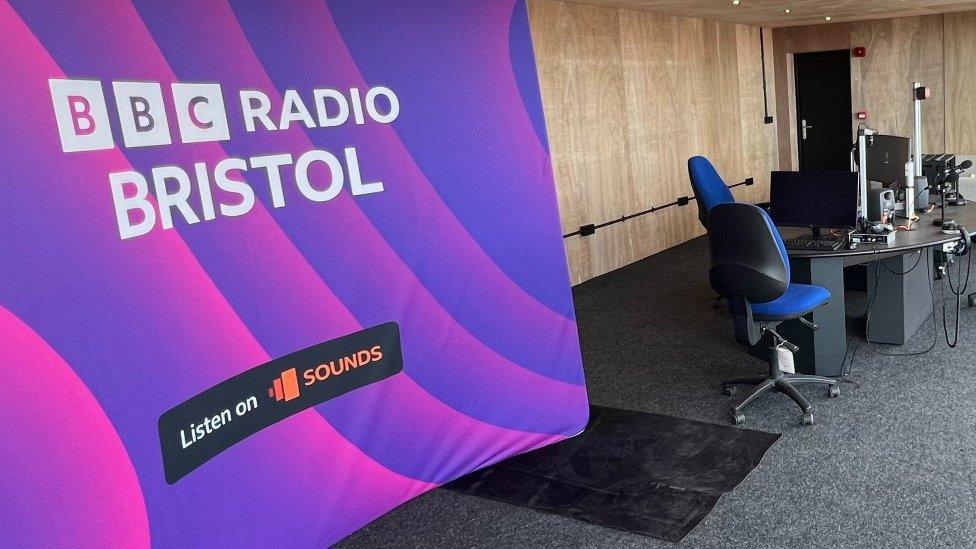
- Published31 October 2022
